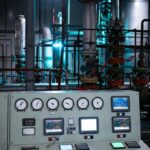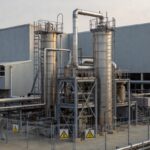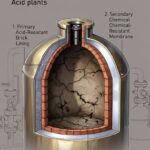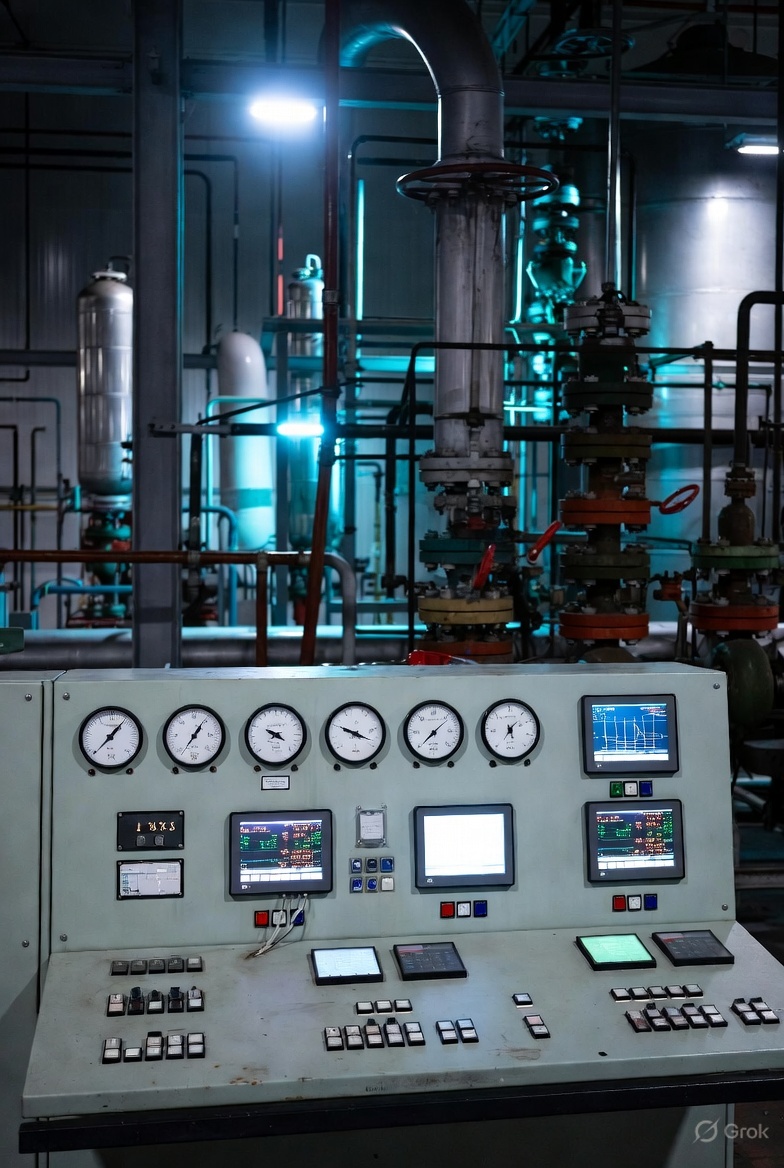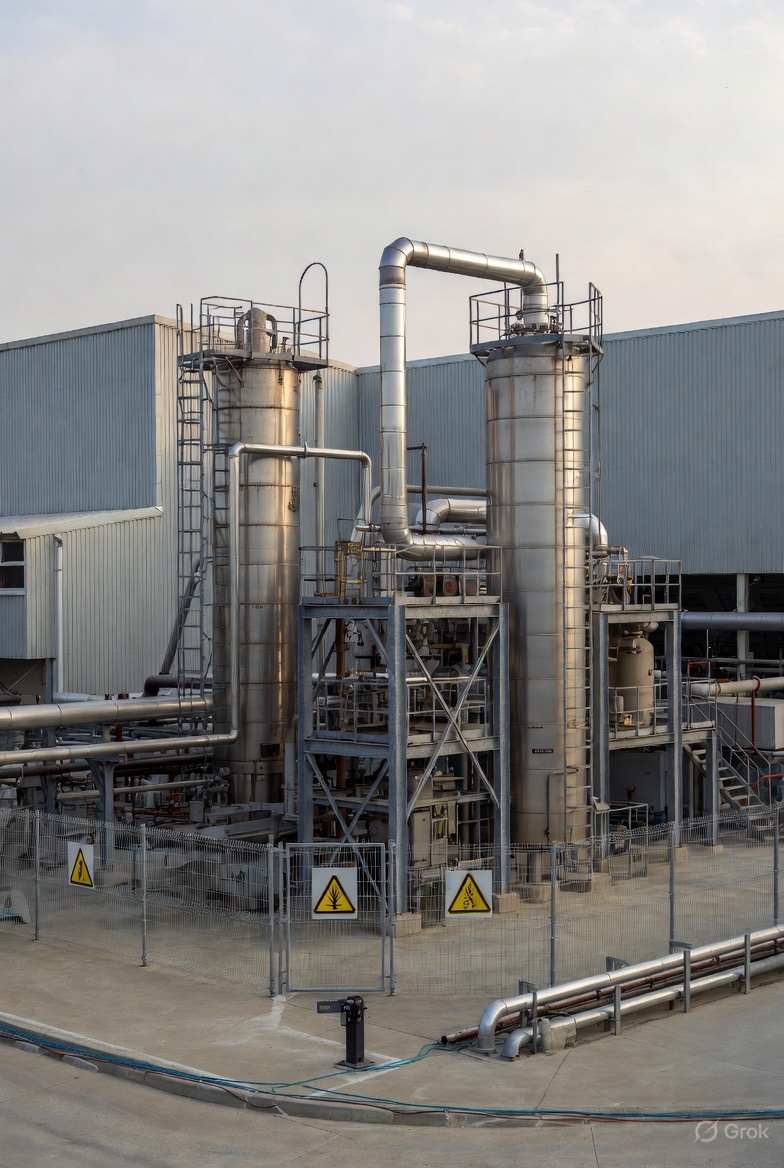In chemical engineering, effective production management is vital for ensuring the smooth operation of processes that are both intricate and large-scale. A critical aspect of this management involves the careful handling of materials—from procurement to usage. This is where Material Requirements Planning (MRP) plays a pivotal role. MRP is a strategic tool used to manage the flow of raw materials, subassemblies, and finished products in a manufacturing system, ensuring that the right materials are available in the right quantities at the right time.
MRP is essential in industries like chemical engineering, where timely and precise material availability is crucial for maintaining process efficiency, product quality, and safety. This article will explore what MRP is, how it functions, and how chemical engineers use it to optimize their processes, minimize waste, and ensure smooth operations.
What is Material Requirements Planning (MRP)?
Material Requirements Planning (MRP) is a computer-based inventory management system used to plan and manage materials required in production. The goal of MRP is to ensure that materials are available when needed for production while minimizing waste, excessive inventory, and costs. MRP helps in calculating the quantity of materials required, determining when to order them, and tracking how much is already in stock.
The MRP system is driven by three key inputs:
Bill of Materials (BOM): A detailed list of all raw materials, components, and subassemblies required to manufacture a product.
Inventory Records: Information on the current stock of materials and supplies.
Production Schedule: A timeline outlining when specific materials are needed based on the production plan.
By processing these inputs, MRP generates a series of production and procurement orders to ensure that materials are available on time and that inventory is managed efficiently.
The Role of MRP in Chemical Engineering
In chemical engineering, MRP plays an even more critical role than in other manufacturing sectors due to the complexity of chemical processes and the wide range of raw materials required. Chemical engineers use MRP to streamline the flow of materials, maintain optimal inventory levels, and ensure that production runs smoothly without delays.
Here are several key areas where MRP is applied in chemical engineering:
1. Ensuring Raw Material Availability
Chemical engineering processes often require a variety of specialized raw materials, such as solvents, catalysts, acids, monomers, and gases, which are essential for chemical reactions or process operations. MRP helps chemical engineers determine the exact quantity of each material required for the process and ensures that these materials are available when needed.
For example, in a polymerization reaction, a chemical engineer may need to ensure that a particular monomer is available in the required quantity for each batch of product. If the material is delayed, the entire production cycle could be impacted.
MRP calculates material requirements based on the production schedule and ensures materials are procured or manufactured in time to meet production demands. This is especially crucial when the plant is running multiple processes in parallel, each requiring different materials at various stages.
2. Optimizing Inventory Management
In chemical engineering, maintaining the right level of inventory is a delicate balance. Too little inventory can lead to material shortages and production halts, while too much inventory can result in increased storage costs, wasted resources, or outdated materials. MRP helps chemical engineers manage inventory levels effectively, ensuring that materials are available when required without overstocking.
For example, a chemical plant might use a wide variety of chemicals, each with a specific shelf life or storage requirement. MRP helps track and manage stock levels, ensuring that raw materials do not expire or degrade in storage. The system can trigger automatic reordering when stock falls below predefined thresholds, reducing the risk of shortages and helping maintain a continuous flow of production.
3. Scheduling and Coordinating Production
In many chemical engineering processes, especially batch production, the sequence and timing of material inputs is critical to the quality and efficiency of the process. MRP helps chemical engineers coordinate material availability with the production schedule, ensuring that materials are available at the right time for each stage of the process.
In a batch processing plant, for example, raw materials might need to be fed into the reactor in precise quantities and at specific times. MRP helps synchronize the delivery of these materials with the operational timeline, ensuring that production runs smoothly without delays or disruptions.
Similarly, in continuous production processes like distillation or refining, MRP ensures that the required feedstocks are available to keep the process running continuously without interruption.
4. Managing Lead Times for Specialized Materials
Certain materials in chemical engineering, such as specialized catalysts or rare chemicals, often have long lead times or need to be custom-ordered from suppliers. MRP plays a critical role in managing these materials by calculating the necessary lead time for ordering, thus ensuring that production does not stall due to late material deliveries.
For instance, in pharmaceutical manufacturing, specific raw materials may require regulatory certification or be subject to quality control checks. MRP can help chemical engineers order these materials in advance to accommodate any regulatory delays or production scheduling shifts.
By factoring in lead times, chemical engineers can place orders well ahead of the required production dates, ensuring that the materials arrive just in time for production without unnecessary delays or last-minute procurement actions.
5. Quality Control and Compliance
In regulated industries like pharmaceuticals, food processing, or chemicals, ensuring that the right materials are used and meet strict quality standards is a priority. MRP systems help chemical engineers track material specifications such as quality standards, batch numbers, expiration dates, and certifications.
By integrating quality control parameters into the MRP system, engineers can ensure that only materials that meet the required standards are used in the process. This helps prevent contamination, non-compliance issues, and faulty product batches. For example, the system can alert engineers when materials are nearing their expiration date or when incoming materials don’t meet regulatory requirements, ensuring that quality is maintained throughout the production cycle.
6. Cost Control and Waste Reduction
In chemical engineering, optimizing the use of raw materials is not only about efficiency but also about cost management and waste reduction. MRP helps chemical engineers minimize waste by ensuring that materials are used in the correct quantities, and only the required amount is ordered.
If the system identifies an excess of materials in stock, it can suggest adjustments to future production plans to help use up surplus inventory. This reduces the need for additional procurement and minimizes waste, contributing to cost savings. For example, if excess solvent is identified, the MRP system might adjust the production schedule to use the surplus in future batches, reducing both waste and the need for additional procurement.
7. Supporting Batch and Continuous Processing
Many chemical engineering processes are either batch-based or continuous in nature. In batch production, chemicals are processed in defined quantities or “batches,” and materials are typically added at set intervals. In continuous production, materials flow through the process non-stop, and the production system needs to run continuously.
MRP supports both types of processes by providing accurate material forecasts for each method. For batch processes, MRP helps schedule raw material deliveries based on batch needs, ensuring that materials are available for each production cycle. In continuous processes, it helps maintain a steady supply of raw materials to avoid any disruptions in the process flow.
Benefits of MRP in Chemical Engineering
Material Requirements Planning offers several advantages to chemical engineers, including:
Efficiency: MRP automates material scheduling and procurement, reducing human error and ensuring that materials are available when required.
Cost Savings: By optimizing inventory levels and minimizing waste, MRP reduces storage costs, procurement costs, and material losses.
Improved Production Planning: MRP helps coordinate material needs with the production schedule, ensuring timely availability of resources and reducing downtime.
Better Quality Control: By tracking material specifications, MRP helps maintain high product quality and compliance with regulatory standards.
Waste Reduction: MRP helps reduce excess inventory and ensures that only the required amount of materials is used, contributing to sustainability efforts.
Challenges of MRP in Chemical Engineering
While MRP offers numerous benefits, it also comes with challenges:
Data Accuracy: The system relies on accurate data, such as stock levels, lead times, and production schedules. Incorrect data can result in poor planning and material shortages.
Complexity in Multi-stage Processes: Chemical engineering processes often involve multiple stages and intricate workflows. Coordinating materials across these stages can be complex and require advanced MRP systems.
Demand Variability: Changes in demand or sudden production delays can disrupt MRP calculations, requiring the system to be updated or adjusted to account for unexpected changes.
Conclusion
Material Requirements Planning (MRP) is a vital tool in chemical engineering that helps optimize the use of raw materials, reduce waste, and streamline production processes. Through its ability to synchronize material procurement, inventory management, and production scheduling, MRP ensures that chemical engineers can maintain consistent production, high-quality outputs, and operational efficiency. While challenges such as data accuracy and demand fluctuations exist, the benefits of MRP make it an indispensable system in managing complex chemical processes.
In the future, as industries increasingly adopt automation, digitalization, and sustainability practices, the role of MRP in chemical engineering will continue to evolve, driving even greater efficiencies and innovations in material management and production.

